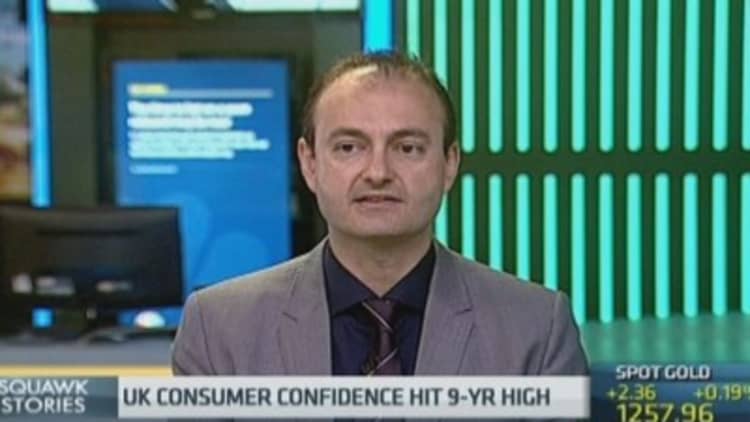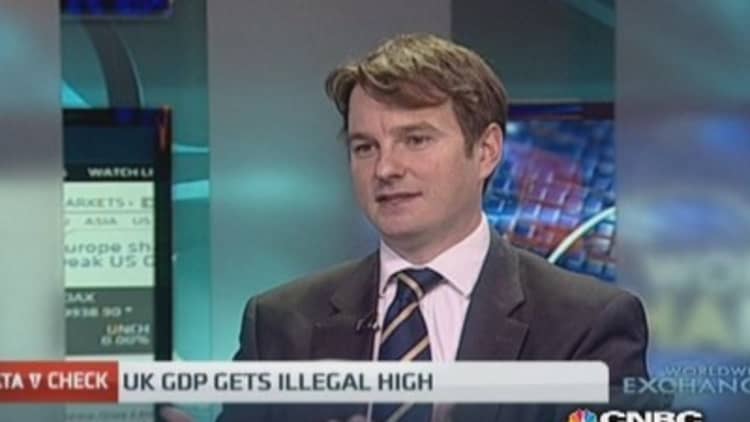
Europe's struggle to recover from the recent financial crisis has been well documented, but some of its countries could be about to get a much-needed boost – from sex, drugs and other illegal activities.
Efforts by the European Union (EU) to harmonize how countries measure their economic output will see parts of the shadow economy – or black market – included in gross domestic product (GDP) calculations. This overhaul of the region's national accounts, which comes into force in September 2014, will see prostitution and the sale of illegal drugs included in the GDP of all European member states.
The controversial move looks set to boost the economies of some EU member states – on paper at least.
On Thursday, the U.K.'s Office for National Statistics said the inclusion of certain illegal activities - such as prostitution, and the importation, manufacturing and consumption of drugs - would add around £10 billion ($16.75 billion), or around 0.7 percent, to annual economic output.
Read MoreTop 3 issues facing Europe's new politicians
This is welcome news for Britain, whose economy grew by 0.8 percent in the first quarter of 2014. And it could be something of a game-changer for some of Europe's more troubled economies, where growth surprised to the downside in the first three months of the year. In Italy, for instance, economic output unexpectedly fell by 0.1 percent in the first quarter, and France's economic growth ground to a halt.
Nonetheless, Thanos Vamvakidis, currency strategist at Bank of America Merrill Lynch Global Research, is unconvinced this shift in accounting is good news for Europe.
"This is not the solution to the growth problem in Europe," Vamvakidis told CNBC. "If you push the people into the underground economy that is a problem – it is not a healthy recovery."
He expressed some reservations about the way the activities are to be included in the accounts. "I would prefer to see revisions counting the underground economy as a whole, rather than individual activities… which raises all sorts of questions."
Read MoreSex and drugs worth $16.7B to UK economy
There are also potential issues in trying to account for activities which are illegal in some counties, but legal in others. According to Raoul Ruparel, head of economic research at the Open Europe think tank, this "complicates the matter somewhat".
"There is also something odd about a government trying to count and estimate activities which are illegal and by virtue have skipped through their enforcement attempts," he told CNBC by email.
"Still in terms of proportions, it might provide an indication for how well or badly the government is doing on enforcing certain laws."
'Talking point'
The inclusion of some illegal activities is just one part of the EU's accounting overhaul, however. Other changes include the way non-for-profit activity and research and development (R&D) is accounted for.

When these changes are introduced, the EU's statistics office Eurostat estimates that 2.4 percent will be added to the Europe's annual GDP. In the first quarter of this year, the EU's economy grew by just 0.3 percent.
The impact differs among member states, with Finland and Sweden expected to receive a GDP boost of between 4 and 5 percent, while Austria, the Netherlands and U.K. should see between 3 and 4 percent added, according to Eurostat.
Read MoreGreat Recession over as UK nears pre-crisis peak
As such, James Ashley, chief economist at RBC Capital Markets, said it was important not to get too hung up on the inclusion of illegal activity in national accounts.
"It's an interesting element, it's a talking point, but the more interesting stuff lies elsewhere in more mundane changes which are, economically speaking, more significant," he told CNBC.
—By CNBC's Katrina Bishop


